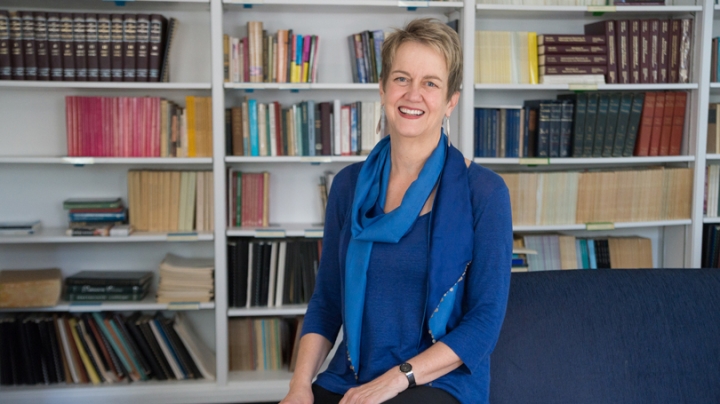This is the second in a series of profiles of the 10 new endowed professors in the arts and sciences.
Susan Brison, the Eunice and Julian Cohen Professor for the Study of Ethics and Human Values
Susan Brison has been a professor of philosophy at Dartmouth since 1985, and also teaches in the Women’s, Gender, and Sexuality Studies Program. She has chaired the philosophy department and served for eight years as faculty director of the East Wheelock Cluster. A feminist philosopher specializing in free speech theory, she works at the intersection of philosophy, law, and politics. She’s been a visiting professor at Tufts, NYU, and Princeton; a Mellon Fellow in the Program in Law, Philosophy, and Social Theory at NYU; and an NEH-funded member of the School of Social Science at the Institute for Advanced Study in Princeton, N.J. She has published her scholarship widely in academic journals and university presses, and has contributed articles and op-eds to TIME, The New York Times Magazine, and The Chronicle of Higher Education, among other media outlets.
What being named to this professorship means:
It’s very gratifying to have the College recognize work in feminist philosophy. I also appreciate that the title highlights the significance of the study of ethics and human values in a liberal arts education.
Current research interests:
I’m working on controversies concerning freedom of expression in the age of the Internet. As a philosopher, I’m interested in the rationale for providing special protections for speech, given that we know that speech can be harmful and can conflict with other things we value, such as privacy. Last spring I organized the Gender Research Institute at Dartmouth (GRID) spring seminar, “Just Words? Free Speech and Social Change,” and I also hosted a workshop with a colleague from Australia that brought together free speech theorists from around the world to talk about hate speech and how the international community should be dealing with it.
On teaching:
I welcome the challenge of working with this generation of students who have grown up with social media. As they grapple with current controversies over such things as Internet hate speech, revenge porn, and cyberstalking, what I can offer them is knowledge of work that philosophers and political theorists have done on the value of free speech as well as the intellectual tools required to formulate, discuss, and, ideally, resolve these issues.
Why Dartmouth:
This is a place where one can be valued as a complete person. I’m able to be a teacher-scholar here and bring my whole self to the task. It’s due partly to the smallness of the place and to the fact that Dartmouth is fundamentally a liberal arts college but also a major research university. This enables me to do things—direct this GRID seminar, be part of humanities institutes, work with scholars from other disciplines—that would be harder to do elsewhere. I’ve been able to have fellowships at other institutions and, with Dartmouth’s support, go to conferences around the world to meet with other scholars. But I’m always happy to return to Hanover, where one of my favorite things is performing jazz with local musicians. To perform for the Dartmouth Swing Dance Club and watch students, faculty, and community members dancing together in Collis Commonground is just a blast.
The Endowed Chairs
Since 1787, Dartmouth has recognized its top faculty with named professorships. These chairs—traditionally supported through endowed gifts from alumni, family, and friends of the College—honor faculty whose scholarship, teaching, and service exemplify Dartmouth’s core mission.
“Endowed professors reflect the best of Dartmouth,” says Dean of the Faculty Michael Mastanduno. “These scholars are not only at the top of their respective fields—they are generous and committed teachers and outstanding citizens of the College community.”
This year, 10 members of the Faculty of Arts & Sciences have been appointed to endowed chairs. In addition, the Tuck School of Business appointed Praveen Kopalle the Signal Companies’ Professor of Management; and Rahul Sarpeshkar joined the faculty this year as the inaugural Thomas E. Kurtz Chair in the William H. Neukom Academic Cluster in Computational Science, with a primary appointment at Thayer School of Engineering.


